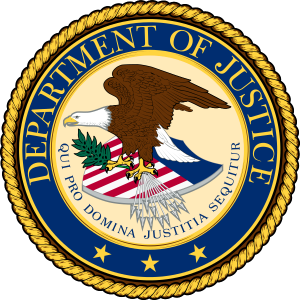 Last month, Deputy Attorney General Sally Q. Yates issued a memorandum on behalf of the Department of Justice (DOJ) that should help whistleblowers nationwide. The memorandum instructs DOJ attorneys investigating criminal and civil corporate misconduct to zero-in on the individual wrongdoers rather than just the corporate entity. The guidance will hopefully lead to larger, quicker settlements of False Claims Act qui tam cases brought by whistleblowers and their attorneys.
Last month, Deputy Attorney General Sally Q. Yates issued a memorandum on behalf of the Department of Justice (DOJ) that should help whistleblowers nationwide. The memorandum instructs DOJ attorneys investigating criminal and civil corporate misconduct to zero-in on the individual wrongdoers rather than just the corporate entity. The guidance will hopefully lead to larger, quicker settlements of False Claims Act qui tam cases brought by whistleblowers and their attorneys.
Yates identified six key steps to bring about her goal of providing “effective enforcement of the civil and criminal laws that protect our financial system and, by extension, all our citizens.” The key steps’ common thread is a focus on individual accountability for the people who actually perpetuated the fraud. According to Yates, such accountability “deters future illegal activity, … incentivizes changes in corporate behavior, … ensures that the proper parties are held responsible for their actions, and … promotes the public’s confidence in our justice system.”
The six steps in full are:
- In order to qualify for any cooperation credit, corporations must provide to the DOJ all relevant facts relating to the individuals responsible for the misconduct;
- Criminal and civil corporate investigations should focus on individuals from the inception of the investigation;
- Criminal and civil attorneys handling corporate investigations should be in routine communication with one another;
- Absent extraordinary circumstances or approved departmental policy, the [DOJ] will not release culpable individuals from civil or criminal liability when resolving a matter with a corporation;
- DOJ attorneys should not resolve matters with a corporation without a clear plan to resolve related individual cases, and should memorialize any declinations as to individuals in such cases; and
- Civil attorneys should consistently focus on individuals as well as the company and evaluate whether to bring suit against an individual based on considerations beyond that individual’s ability to pay.
The aforementioned guidance applies “to all future investigations of corporate wrongdoing” so whistleblowers considering whether to come forward should be able to rely on the might of the DOJ to be behind them seeking to hold individuals accountable for corporate misconduct.
Each step should help qui tam cases brought by whistleblowers.
In explaining the first step, the DOJ states its position that “‘full cooperation’ under the False Claims Act, 31 U.S.C. § 3729(a)(2), will be that, at a minimum, all relevant facts about responsible individuals must be provided,” in order to get any “cooperation credit.” The DOJ attorneys are further encouraged to be proactive in the discovery process — one that is usually fraught with obstacles and objections that whistleblowers often have to overcome on their own.
Second, the memo recognizes that because “a corporation only acts through individuals, investigating the conduct of individuals is the most efficient and effective way to determine the facts and extent of any corporate misconduct.” For years, whistleblower attorneys have attempted to bring individuals into the fray in order to hold them accountable for their corporation’s misdeeds. Having skin in the game often enhances an officer or director’s motivation to resolve the issue. Naturally, whistleblowers should be encouraged by the DOJ advocating the same tactic.
Third, whistleblower attorneys have seen cases stalled for years while the civil and criminal DOJ attorneys take turns investigating, sometimes to the case’s detriment as facts become stale over time. Here, Yates advocates for full cooperation between the civil and criminal divisions in order to promote the “most thorough and appropriate resolution in every case.”
The fourth and fifth steps combine to require attorneys to not release individuals from liability as a part of a corporate whistleblower settlement unless it has been “personally approved in writing by the relevant Assistant Attorney General or United States Attorney.” Further all decisions to not pursue individuals must be explained in writing.
This is perhaps the most significant portion of the memo as it should decrease the possibility of individual officers and directors escaping liability based on the company’s willingness to cut a small check. Barring individual releases and requiring DOJ attorneys to explain why they didn’t pursue an individual may change the way qui tam lawsuits are defended and will hopefully lead to better results for whistleblowers and their attorneys.
Finally, Yates emphasizes that an ability to pay should not compromise the pursuit of individuals. The memo explains that short term monetary returns can be far outweighed by the “significant long-term deterrence” of individual accountability. This step will likely prompt officers and directors to authorize larger payouts in order to attempt to provide both a short term monetary return for the Government and the deterrence that the DOJ seeks in the memo.
In sum, Yates is directing the attorneys charged with prosecuting whistleblower cases to hotly pursue the individuals responsible for corporate misconduct. Hopefully, we will see an increased willingness for companies to come to the settlement table with generous offers for whistleblowers to try to avoid the individual liability advocated by DOJ attorneys.


